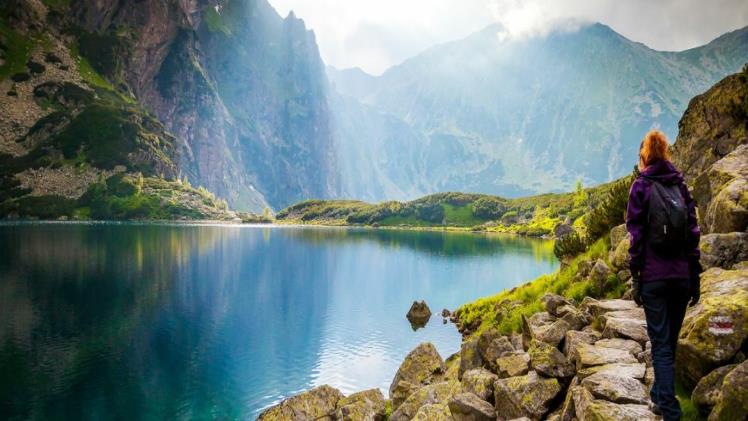As the climate crisis deepens and global consciousness grows around sustainability, the travel industry is undergoing a radical transformation. More travelers than ever are seeking meaningful, environmentally responsible ways to explore the world—giving rise to a surge in eco-tourism.
But eco-tourism is no longer just about backpacking through the rainforest or staying at an off-grid cabin. The future of eco-tourism is high-tech, community-focused, and deeply connected to conservation and cultural preservation.
Here’s how eco-tourism is evolving, what trends to watch, and why this travel movement is shaping the next era of global exploration.
What is Eco-Tourism?
Eco-tourism refers to responsible travel to natural areas that conserves the environment, supports local communities, and fosters education. Unlike mass tourism, which often leaves behind environmental damage and cultural disruption, eco-tourism aims to give more than it takes.
Today, it includes a range of experiences—from wildlife safaris and marine conservation trips to farm stays and carbon-neutral adventure tours.
1. Carbon-Neutral and Low-Impact Travel
In the future, carbon-conscious travelers will expect operators to offset or eliminate emissions from flights, ground transport, and accommodation. Airlines, hotels, and tour companies are investing in:
- Renewable energy
- Electric transportation
- Reforestation programs
- Sustainable fuel alternatives
Eco-tourism in 2030 will be shaped by climate accountability.
2. Smart Technology for Sustainable Travel
Tech is playing a big role in making travel more sustainable:
- Apps that show your carbon footprint while traveling
- Augmented reality guides that reduce the need for printed maps or on-site staff
- IoT devices in eco-lodges that monitor energy and water use
With AI and data analytics, travelers will soon be able to plan eco-friendly trips with precision.
3. Local Communities as Stakeholders
The future of eco-tourism emphasizes community-led tourism. Rather than being passive participants, locals are becoming:
- Tour guides and cultural educators
- Eco-lodge owners
- Conservation managers
This ensures tourism dollars stay within the community and empower sustainable development.
4. Regenerative Travel, Not Just Sustainable Travel
Where sustainability focuses on minimizing impact, regenerative tourism goes a step further: improving the destination through travel. This might include:
- Participating in coral reef restoration
- Funding wildlife protection
- Volunteering in permaculture farms
Expect more tour options where your presence helps heal ecosystems and economies.
5. Eco-Luxury Is on the Rise
Sustainability and luxury no longer have to be at odds. In fact, some of the world’s most exclusive resorts are also the most eco-conscious:
- Solar-powered villas
- Locally sourced, organic fine dining
- Architecture that blends into the natural landscape
Eco-tourism is expanding to include high-end travelers seeking purpose, comfort, and responsibility.
6. Biodiversity Hotspots as Travel Priorities
Eco-tourism is drawing attention to biodiversity hotspots—regions rich in endemic species and at risk due to human activity. Future eco-travelers will prioritize destinations like:
- The Galápagos Islands
- Madagascar
- Costa Rica
- Borneo
Tourism in these areas must be tightly regulated to avoid damaging what it seeks to protect.
7. Certifications and Ethical Transparency
Future travelers will demand proof that their travel providers are walking the talk. Certifications like:
- Green Globe
- EarthCheck
- Global Sustainable Tourism Council (GSTC)
…will serve as markers of trust and ethical operation.
8. Conscious Travelers, Not Just Consumers
Perhaps the biggest shift will be in the mindset of the traveler. People are seeking connection, meaning, and education—not just sightseeing. Eco-tourism encourages:
- Learning about local culture and history
- Immersive experiences with indigenous communities
- Reflecting on one’s personal footprint
This is tourism that transforms both people and places.
Conclusion
Eco-tourism is more than a travel trend—it’s a movement that reflects how we want to interact with the planet. As awareness grows, travelers are demanding ethical, immersive, and sustainable alternatives to conventional vacations. With technology, community engagement, and a focus on regeneration, the future of eco-tourism is bright—and vitally important.
FAQ: The Future of Eco-Tourism
1. What is the difference between eco-tourism and regular tourism?
Eco-tourism focuses on sustainability, environmental conservation, and community empowerment, while traditional tourism often prioritizes entertainment and convenience—sometimes at the expense of the environment or local culture.
2. Is eco-tourism more expensive than traditional travel?
It can be, but not always. While some eco-lodges and carbon-offset experiences come at a premium, many budget-friendly options exist, especially those run by local communities.
3. How do I know if a tour company is truly eco-friendly?
Look for certifications like EarthCheck or GSTC, read independent reviews, and check if they support conservation projects or hire local staff.
4. What are examples of eco-tourism activities?
Examples include bird watching, nature hikes, snorkeling in marine protected areas, wildlife safaris, volunteering at sanctuaries, and staying at eco-lodges.
5. Can eco-tourism really make a difference for the environment?
Yes, when done responsibly. It can fund conservation, raise awareness, and give locals economic alternatives to harmful practices like deforestation or poaching.
6. What should I pack for an eco-tourism trip?
Essentials include reusable water bottles, eco-friendly toiletries, quick-dry clothing, biodegradable sunscreen, and a sense of cultural sensitivity.
7. What are the best countries for eco-tourism?
Top destinations include Costa Rica, New Zealand, Norway, Bhutan, Kenya, and Iceland—places known for strong conservation policies and sustainable infrastructure.
8. How is technology improving eco-tourism?
Technology helps by offering carbon tracking apps, online platforms for booking sustainable stays, digital guides, and IoT-powered energy-saving features in eco-resorts.
9. Is flying compatible with eco-tourism values?
While flying has a carbon cost, you can reduce impact by choosing direct flights, flying economy, purchasing carbon offsets, and staying longer at destinations.
10. What is regenerative tourism, and how does it relate to eco-tourism?
Regenerative tourism goes beyond minimizing harm—it aims to leave destinations better than they were before by restoring ecosystems, supporting community projects, and building resilience.






